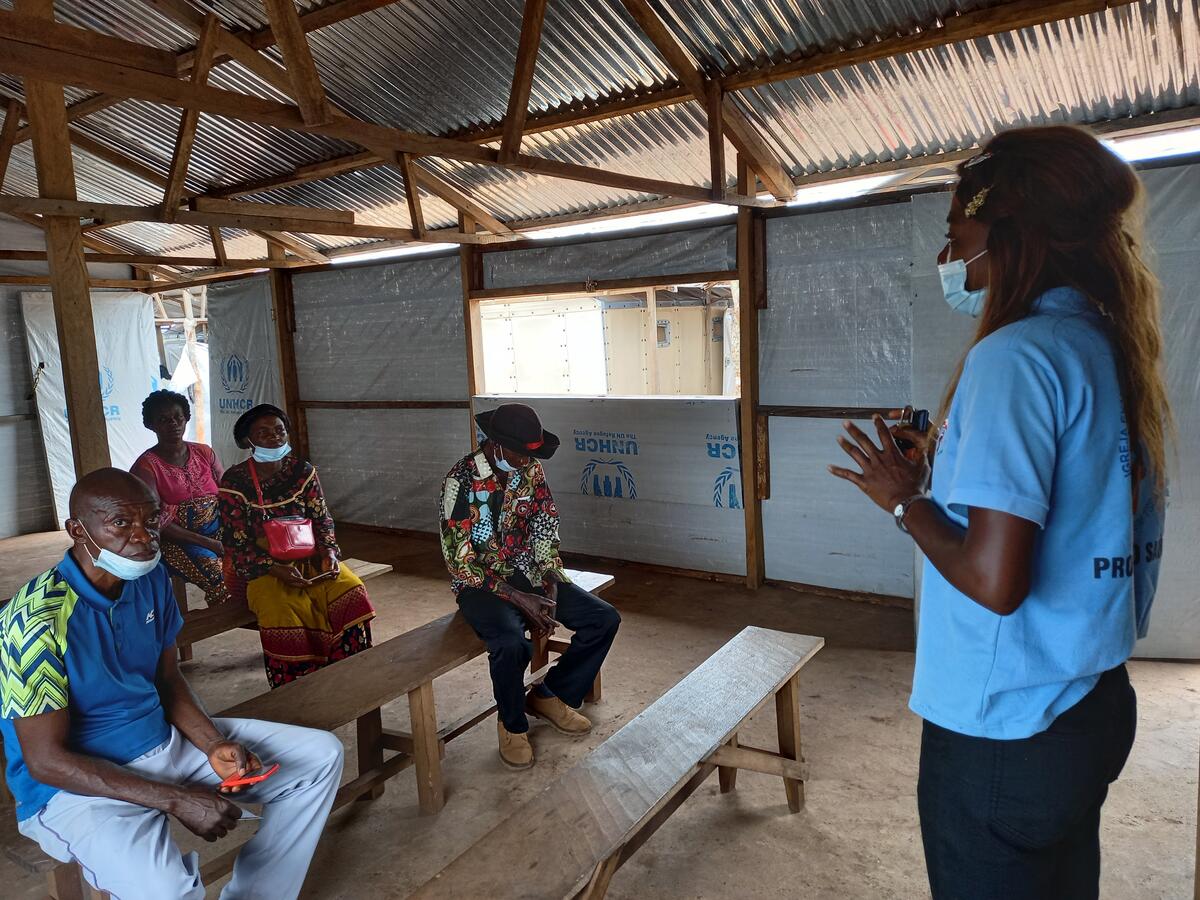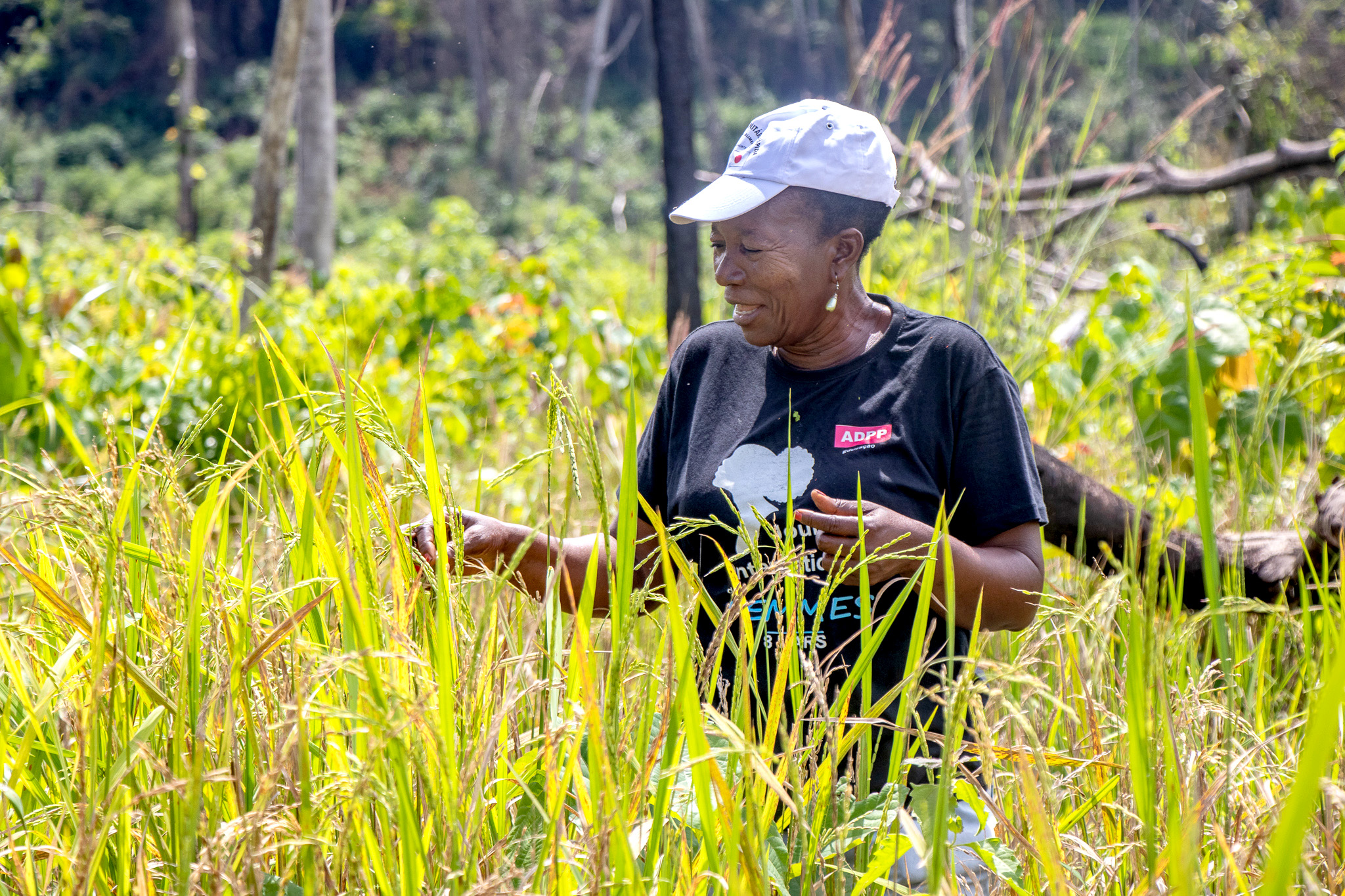Refugee returns to Angola gather momentum
Refugee returns to Angola gather momentum

LUANDA, Angola, July 17 (UNHCR) - More than 5,300 Angolan refugees have gone home from neighbouring countries since the organised movement began on June 20th. On Thursday (July 17), 509 refugees boarded the latest repatriation convoy that took them from Meheba refugee camp in Zambia for Cazombo in Angola.
Thursday's movement, organised jointly by Zambian authorities, the International Organization for Migrations and UNHCR comes close on the heels of two other convoys which took home Angolan refugees from the Democratic Republic of the Congo on Wednesday.
There were mixed emotions among the refugees in Meheba on Thursday morning as the convoy of more than a dozen buses and trucks left the camp in western Zambia for the border town of Kamapanda, nearly 200 kms away. The refugees were scheduled to spend their last night on Zambian soil at Kamapanda, before crossing over into Angola early Friday. All the returnees are going back to Cazombo in Moxico province, eastern Angola.
More than 30,000 refugees in Meheba have registered to return home in convoys that should transport up to 1,000 returnees each week. More refugees at the camp of 45,000 are queuing up to sign up for repatriation to Angola - a country they fled during 27 years of civil war that left the mineral-rich African nation in ruins.
Zambia launched its programme for the organised repatriation of Angolan refugees on July 11. Amid song and dance refugees thronged the departure centre to see off their compatriots. The first convoy carrying 387 refugees was flagged off by Zambia's Permanent Secretary in the Ministry of Home Affairs, Peter Mumba.
Next week, officials of the Zambian government and UNHCR will meet to plan a return programme for refugees living in three other refugee camps in western Zambia. The country is home to more than 200,000 Angolan refugees - half the total number of Angolan refugees in the region.
Two return programmes for Angolan refugees in the Democratic Republic of the Congo (DRC) and Namibia are also underway. By July 16, the repatriation operation launched in D.R. Congo on June 20 - World Refugee Day - had assisted the return of 4, 264 refugees, primarily to Zaïre province, north-west Angola, and to Moxico in the east. On July 16, two convoys took home a total of 954 refugees from Kilueka camp in DRC's Bas-Congo province and Tshimbumbulu in Katanga, to the south.
In Namibia, some 150 refugees from Osire camp, some 300 km north of the capital, Windhoek have been assisted to return home. A second convoy of 200 Angolan returnees is planned for 23 July. Many of the Angolan refugees in Namibia will be returning to Angola's southern province of Cuando Cubango.
With the repatriation operation fully established in Zambia, UNHCR now has in place four return routes to Angola. There are two return routes from the D.R. Congo: one, from the Bas Congo southwards into Mbanza Congo in north-western Angola and, the other, from Katanga Province to Luau in north-eastern Angola. UNHCR opened up a third route from Namibia into the southern Angola province of Cuando Cubango on 1 July. The route from Meheba camp in Western Zambia becomes the fourth return route.
Returnees will spend the first few days back in Angola in reception centres where they will receive mine awareness training and information on HIV/AIDS. Before leaving the centre, they will also receive some food, a construction kit to help them set up their homes and basic domestic supplies. Later in the year, they will receive seeds and farming tools in their home communities.
In October 2002, UNHCR launched an appeal for $29.4 million to aid the return of more than 200,000 Angolan refugees over a two year period (2003/2004). To date, the refugee agency has received just over $15 million of the funds requested from donors.








